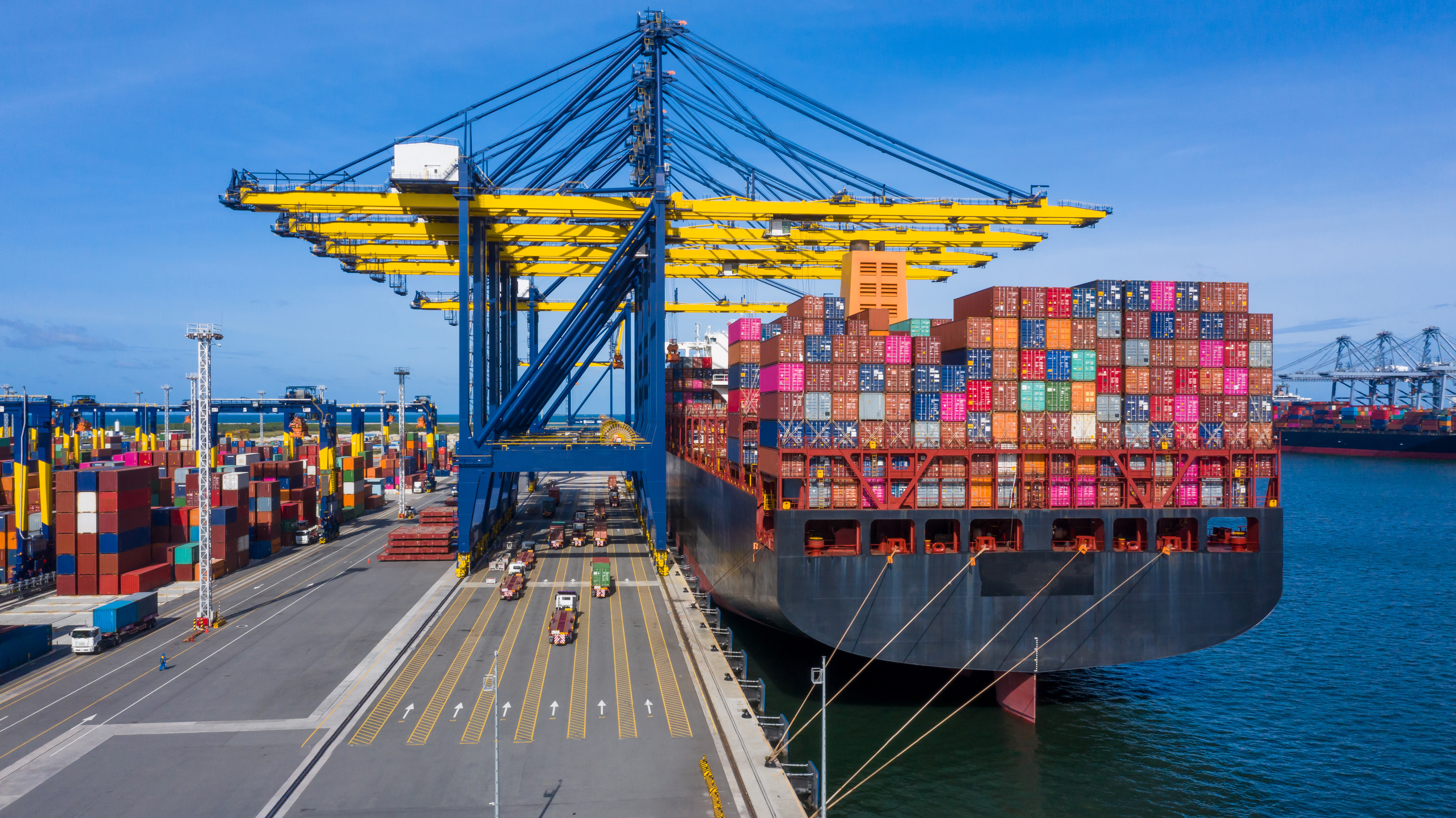1. Stevedore damage can be categorised, broadly, into three forms:
- Damage to ship
- Damage to cargo
- Personal injury
2. Whose servant is the stevedore?
Stevedores are employed to assist in the loading and discharging of cargo from a vessel. Responsibility for their actions will depend primarily upon who engages their services, the shipper of cargo, the owner of the ship or the charterers of the ship.
3. The NYPE 1946 Charterparty provides that:
"... charterers are to load, stow and trim the cargo at their expense under the supervision of the Captain...".
This has been held (Court Line v Canadian Transport Co Limited [1940] 67 Ll.L. Rep 161) to mean that the charterers are required to arrange for the loading and stowage of the cargo. Lord Wright summarised charterers' responsibilities as follows:
"... under Clause 8 of this Charterparty the charterers are to load, stow and trim the cargo at their expense. I think these words necessarily import that the charterers take into their hands the business of loading and stowing the cargo. It must follow that they not only relieve the ship of the duty of loading and stowing, but as between themselves on the ship owners relieve them [the ship owners] of liability for bad stowage, except as qualified by the words "under the supervision of the Captain"... These words give the Master a right which I think he must in any case have, to supervise the operations of the charterers in loading and stowing... But I think this right is expressly stipulated not only for the sake of accuracy, but specifically as a limitation of the charterers' rights to control the stowage. It follows that to the extent that the Master exercises supervision and limits the charterers' control over the stowage charterers' liability will be limited in a corresponding degree".
Accordingly, charterers under this form of Charterparty are responsible for the engagement of stevedores to effect stowage of the cargo and remain responsible for their actions. The Master of the vessel has an overlying responsibility for the safety of a ship and is entitled to exercise this should he consider the stowage arrangements for the cargo to be unsatisfactory.
4. The NYPE 1993 form Clause 35 makes provision in respect of stevedore damage:
"Notwithstanding anything contained herein to the contrary, the Charterers shall pay for any and all damage to the vessel caused by stevedores provided the Master has notified the Charterers and/or their agents in writing as soon as practical but not later than 48 hours after any damage is discovered. Such notice to specify the damage in detail and to invite charterers to appoint a surveyor to assess the extent of such damage.
(a) In case of any and all damage(s) effecting the vessel's seaworthiness and/or the safety of the crew and/or effecting the trading capability of the vessel, the Charterers shall immediately arrange for repairs of such damage(s) at their expense and the Vessel is to remain onhire until such repairs are completed and if required passed by the Vessel's Classification Society.
(b) Any and all damage(s) not described under point (a) above shall be repaired at the Charterers' option, before or after redelivery concurrently with owners' work. In such case no hire and/or expenses will be paid to the owners except and insofar as the time and/or the expenses required for the repairs for which the Charterers are responsible, exceed the time and/or expenses necessary to carry out the owners' work".
5. NYPE 93 form of Charterparty therefore makes express provision with regard to stevedores and particularly any damage to the vessel caused by them.
6. Responsibility for the employment of charterers is of importance insofar as it would determine the primary liability as between owners and charterers for any damage caused by stevedores to the vessel and/or cargo.
7. The stevedore company itself will remain responsible for the actions of stevedores engaged to load/discharge cargo on board the vessel. However, the prospects of pursuing a stevedoring company in a foreign jurisdiction with uncertain results may often be unattractive. It is for this reason that owners will often seek recourse from charterers in respect of liabilities/damage suffered.
Damage to cargo
8. As stated above, responsibility for damage to cargo on board the vessel will depend upon the contractual terms of carriage. Reference should be made to the Charterparty and/or bills of lading.
9. It is often the case that owners bear primary responsibility to receivers of cargo under the terms of the bill of lading contract. However, indemnities may be obtained from charterers in respect of losses arising from, for example poor stowage, where charterers under the terms of the Charterparty are responsible for stowage arrangements.
10. Once again taking the NYPE 1946 form of Charterparty as an example in its unamended form charterers remain responsible for the loading and stowage of cargo and the Master's supervisory role is limited to the safety of his vessel. However, where the Master interferes in the loading operation and the Master's interference results in damage to the cargo, owners may be held responsible.
11. The NYPE form of Charterparty is often amended to provide that cargo will be loaded under the supervision and responsibility of the Master. In these circumstances the burden shifts from charterers. Stevedores will be employed by charterers however the Master is responsible for the stowage of cargo and losses arising from poor stowage will rest with the owners ("SHINJITSU MARU" 5 [1985] 1LLR 568).
Damage to Ship
12. Damage to a vessel caused by stevedores can vary between minor damage to fixtures and fittings and quite spectacular damage including, ultimately, the total destruction of the vessel (re "POLEMIS" [1921] 3KB 560).
13. As for damage to cargo responsibility for recovery of the costs of damage to a vessel will depend upon the terms under which stevedores are employed.
14. Generally under the terms of a time Charterparty stevedores are employed by charterers and ultimate responsibility for damage caused to the vessel will lie with charterers. However, charterparties often require notice of damage to be given within a very short period of time and efforts to effect recovery from stevedores directly to have been made. Furthermore, difficulties may arise in recovering for any time lost as a result of the need to effect repairs following redelivery of the vessel in an unrepaired condition.
15. Clear, well drafted Charterparty clauses governing responsibility between owners and charterers are of particular importance. In its unamended form the NYPE 93 Charterparty Clause 35 provides a simple mechanism for owners to obtain redress from charterers in respect of stevedore damage. The most important requirement is that notice provisions are complied with. Failure to do so will, in many circumstances, prevent a claim.
16. With regard to clarity of drafting of Charterparty clauses set out below are the provisions contained in one Charterparty regarding stevedore damage and particularly the time for repairs. The Charterparty was on a NYPE 1946 form Clause 8 was amended to provide that "charterers are to load, stow, secure/lash/unlash/tally/discharge and trim cargo at their expense under the supervision of the Captain".
An additional typewritten clause provided as follows:
"Charterers are not to be liable for any wear/tear damage to the vessel and/or gear unless same caused by stevedore is reported by the Master in writing (on damage report forms supplied by charterers) to the charterers' agent at the port where such damage occurs within 24 hours or before leaving port whichever is earlier. However, any damage not apparent at the time of occurrence prior leaving port to be reported to charterers immediately when noticed but not later than upon completion of discharge of the cargo of the current voyage, otherwise owners to forfeit their rights to any compensation, repairs for the charterers' account insofar as possible to be effected during and after the currency of the Charterparty, unless repairs are immediately essential because damage affects Classification or vessel's seaworthiness and/or cargo worthiness".
The difficulty with the above Charterparty clause is that it imposes very strict time limits for notification of cargo damage i.e not later than completion of discharge of the cargo and makes unclear provisions with regard to effecting repairs.
Personal Injury Claims
17. A ship owner owes a duty of care to all persons coming on board his vessel. His duty of care is a common law duty based in the tort of negligence. Furthermore, statutory provisions apply which impose obligations on an owner to ensure the safety of personnel on board the vessel. These statutory provisions include the provision of safe access to the vessel, safe means of movement around the vessel, safe equipment for use in cargo operations etc.
18. From a practical point of view owners should ensure that their vessel is fully in compliance with Classification Society regulations and that all equipment made available for use by stevedores is correctly designated, tested and operated.
19. Failure on the part of the ship owner to ensure the safety of equipment on board the vessel which results in injury to, for example, a stevedore may result in substantial claims particularly in jurisdictions such as the USA.
Conclusions
23. Damage caused by stevedores should be noted accurately and notification given to charterers. If in any doubt ship's crew should contact their local P&I representatives in order to obtain assistance.
20. Liability for damage and/or loss caused by stevedores will depend upon the contractual terms of their engagement. Indemnities may be obtained from charterers in certain circumstances.
21. Compliance with time limits for the notification of stevedore damage to the vessel and/or protests in connection with stevedore damage to cargo need to be made promptly and in accordance with any Charterparty provision.
22. The most important aspect in the defence or prosecution of any claim is the speedy gathering of evidence. The Mariner's Role in Collecting Evidence is a guidebook which is held on board many vessels sets out the basic requirements for the information needed in order to assist lawyers in best defending owners' position. The Master should be encouraged to protest about poor stevedoring performance, photographic evidence should be obtained wherever possible and log entries made in respect of any unusual events.



![The Solomon Trader [2025] EWCA Civ 1387: The ‘pay to be paid’ rule affirmed in the Court of Appeal](/fileadmin/uploads/ukpandi/News_Images/AdobeStock_104743067.jpeg)
